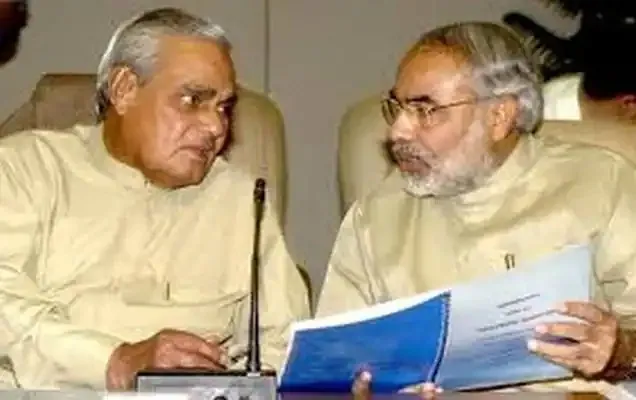Today marks a significant milestone as India celebrates the 100th birth anniversary of Shri Atal Bihari Vajpayee, one of the country’s most admired leaders. PM Modi said on Vajpayee “the statesman who shaped India with his vision and resolve.”
PM Modi said that Vajpayee is known for his statesmanship, vision, and unwavering dedication to the nation, Vajpayee’s influence continues to shape India’s political and social landscape. His contributions as Prime Minister and visionary have left a lasting legacy in the country’s progress.
Assuming office of Prime Minister in 1998, Vajpayee became a stabilizing force in a period of political unrest. His leadership helped restore confidence in India’s democracy, providing steady governance that guided the nation through a time of uncertainty. His tenure as Prime Minister was marked by transformative achievements in various sectors, which continue to benefit India today.
Among his most celebrated accomplishments is the Golden Quadrilateral Project, which connected India’s four major cities and became a cornerstone of the country’s infrastructure. Additionally, his government focused on improving rural connectivity through the Pradhan Mantri Gram Sadak Yojana and made significant strides in urban infrastructure with the development of the Delhi Metro.
Vajpayee was also a key advocate for technological advancement, pushing for greater accessibility to modern technology across the nation. Under his leadership, India saw significant progress in the fields of telecommunications and information technology, making technology more accessible to the common man.
The Pokhran nuclear tests of 1998 stand as one of Vajpayee’s most defining moments. Despite facing international criticism, India under his leadership demonstrated its nuclear capabilities, sending a clear message of national pride and sovereignty. This bold move reflected his strong personality and leadership in the face of external pressure.
Vajpayee was also a master of diplomacy and political unity. He was instrumental in the formation of the National Democratic Alliance (NDA), bringing together diverse political groups under a shared vision of progress. His ability to navigate India’s complex political landscape and unite people from different backgrounds remains a hallmark of his leadership.
Social reform was another area where Vajpayee’s government made a significant impact. Programs like Sarva Shiksha Abhiyan, aimed at providing education to all, particularly marginalized communities, laid the groundwork for a more inclusive India. His economic reforms, which promoted growth and stability, were key to India’s emergence as a global economic power.
Vajpayee’s commitment to the Constitution and democracy was unwavering. His leadership during the Emergency and his respect for constitutional values ensured that Indian democracy remained strong. As India’s External Affairs Minister, he made history as the first to address the United Nations in Hindi, a moment that showcased his pride in India’s culture and heritage.
On his centenary, leaders across India have paid tribute to Vajpayee’s vision, leadership, and values. His role in the formation of the Bharatiya Janata Party (BJP) and his ability to provide an alternative political narrative remain integral to the party’s success. His integrity and dedication to India’s welfare continue to serve as a model for current and future leaders.
As the nation celebrates the 100th birth anniversary of Atal Bihari Vajpayee, it reaffirms its commitment to his ideals of good governance, unity, and progress. His enduring belief in India’s potential continues to inspire the country to strive for greater achievements.








